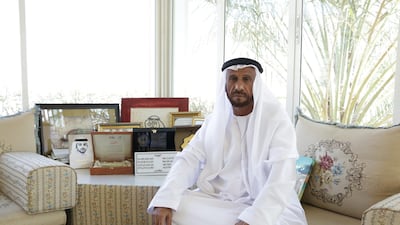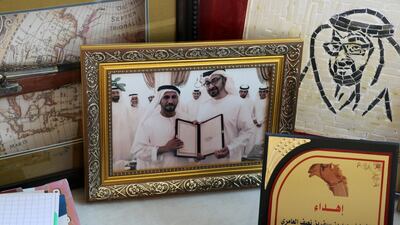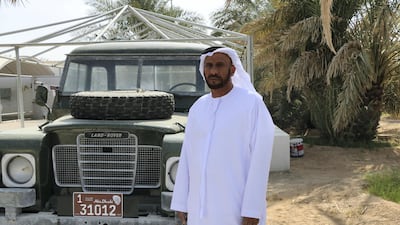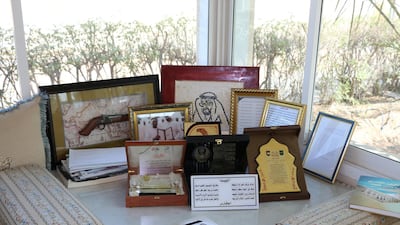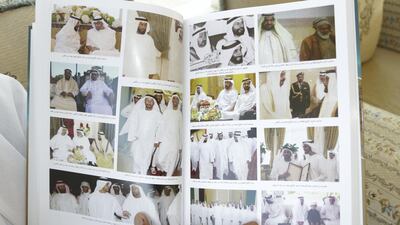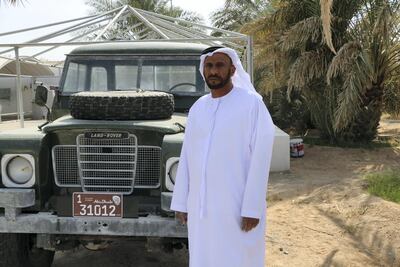When Sheikh Zayed, the Founding Father, sought to unite the emirates in 1971, the scale of the task was immense.
One of his biggest challenges was to unite the Bedouins and it took a man such as Sheikh Zayed to convince the tribes to abandon decades of nomadic living, commit to belonging to one place and believe in the dream of the UAE.
Although most had barely spoken to him, the first President of the UAE was such a formidable force that his ideas were enough to bring together camel herders, pearl divers and so many more from all corners of the emirates.
He built houses for them, schools to educate their children and hospitals to treat their sick.
Although many could barely read or write and were so set in their ways, they believed in a man they barely knew.
He was younger than most of them but his strength of leadership made him instantly known as "Baba Zayed". To mark the UAE's 49th National Day, and as the country enters its 50th year, The National interviewed six people who lived through these days of change.
Mohammed Al Ameri was only 6 when he first became aware of Sheikh Zayed.
The UAE's Founding Father was a neighbour in Al Ain oasis, where Mr Al Ameri grew up.
Sheikh Zayed lived among them and shared in their hopes and dreams. Mr Al Ameri often attended his majlis in Al Ain.
"If Sheikh Zayed had nothing on that day or was not travelling, then I would be with him either at Al Bahar Palace or Al Khazna or Al Wathba or Al Ain," says Mr Al Ameri.
"We had a permit that allowed us to see him whenever we wanted. We considered ourselves his men and his children."
Looking back on those days, Mr Al Ameri recalls a time when everyone's door was open and the community was much smaller.
"He was a father, kind to his people, and a father to everyone and to all nationalities. He loved unity, his friends, his people and to be with them," says Mr Al Ameri.
But the winds of change were blowing through the region. Sheikh Zayed knew that unification of the seven emirates would be the best way to navigate an uncertain future as the British withdrew from the Arabian Gulf.
Mr Al Ameri was in the desert when news of unification filtered through on December 2, 1971. But the importance of the moment was not lost on anyone. Things could never be the same again.
“Sheikh Zayed had been chasing it since the 1960s. Before the union we were separated," says Mr Al Ameri.
"But when the union was formed, we became stronger and we had roads, hospitals, schools and development and the people came to us from around the world for us to benefit from them and them us.
"In the seventies and before this, the roads were limited and development scarce, but today Abu Dhabi has reached Al Ain and Dubai and everything has joined together. Today you don't know when you reach Al Ain or Dubai and it looks like one emirate.
"We became a global civilisation and when we used to travel to see other countries, tourists began coming to see us.
"Sheikh Zayed established a great country for us. Residents are also happy. It was a celebration."
Mr Al Ameri went on to have a life of opportunity unheard of for so many people who went before.
He joined the military, entered the Royal Guard and moved into government administration. It was a world of plenty and it seemed as though things would continue for ever.
He also wrote poetry in honour of Sheikh Zayed. When he died on November 2, 2004, it came as a shock.
"We never expected Sheikh Zayed to die or to grow old," says Mr Al Ameri.
"We felt he was always going to be our leader and that we were all his children. We miss those days of celebrating with Sheikh Zayed on National Day or Ramadan and other occasions, but his children and the current leaders have continued that legacy.
"I congratulate the leaders and the people on our National Day that was established by Sheikh Zayed and the other Rulers."
______________
